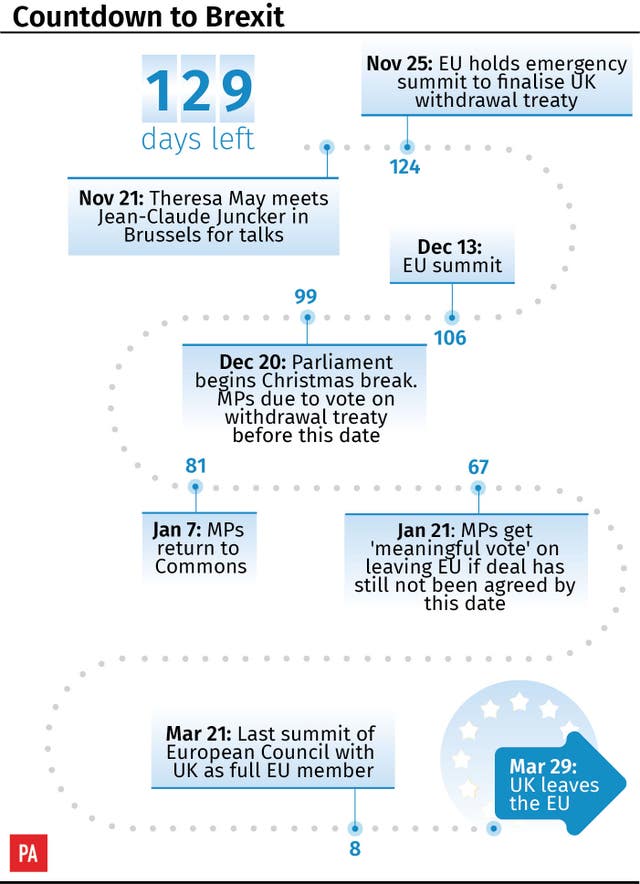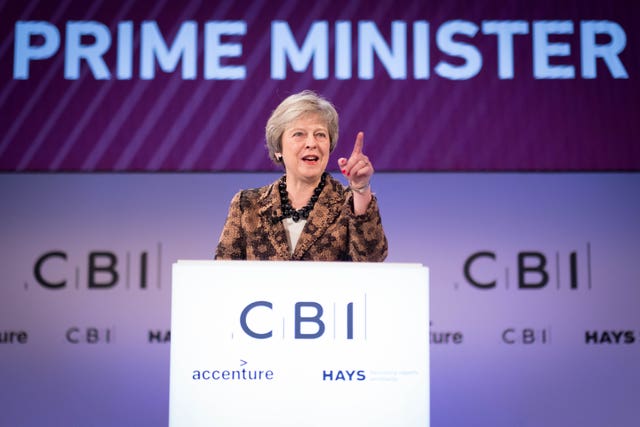Theresa May’s DUP allies fire Brexit warning shot amid claims of broken promises
The Northern Ireland party voted with Labour on the Budget in a ‘political message’ to the PM.

Theresa May’s DUP allies have delivered a warning shot across the bows after accusing the Prime Minister of breaking fundamental promises on Brexit.
The party joined with Labour to cut the Government’s majority to just five in a Commons vote on the Budget.
They also abstained on a series of other amendments to the Finance Bill on Monday night in a move intended to send a “political message” to Prime Minister.

Under the terms of the deal, agreed after Mrs May lost her Commons majority in last year’s general election, the Northern Ireland party is supposed to back the Government on Budget matters and on confidence votes.
But DUP Brexit spokesman Sammy Wilson said Mrs May’s deal with Brussels breached a “fundamental” assurance that Northern Ireland would not be separated constitutionally or economically from the rest of the UK.
“We had to do something to show our displeasure,” he told BBC2’s Newsnight.
“All of them were designed to send a message to the Government: ‘Look, we have got an agreement with you but you have got to keep your side of the bargain otherwise we don’t feel obliged to keep ours’.
“She has broken all of those promises – to the people of the United Kingdom, to her own party and to the people of Northern Ireland.”
“We no longer have a functioning government. With Brexit only a few months away something has got to give,” he said.
The DUP warning adds to the pressure on the Prime Minister just as a move to unseat her by Tory Brexiteers appeared to have stalled.
Members of the Conservative European Research Group were last week confidently predicting they would get the 48 letters of no confidence needed to trigger a vote in her leadership.
However, there has been no announcement from the chairman of the backbench 1922 Committee, Sir Graham Brady, they have reached that tally while the number of MPs who have publicly declared they submitted letters remains in the twenties.

Michael Gove – who last week turned down the job of Brexit Secretary following the resignation of Dominic Raab – Andrea Leadsom, Penny Mordaunt, Liam Fox and Chris Grayling were all reported to be unhappy with the terms over the Northern Ireland border.
However there was little sign that they were preparing to force a fresh showdown at the weekly meeting of the Cabinet in Downing Street on Tuesday.
Ahead of the meeting, Foreign Secretary Jeremy Hunt delivered a renewed warning against any attempt to oust the Prime Minister.
“Seeking to remove her risks the most appalling chaos that could be immensely damaging to our national reputation, but also destabilising and potentially stopping us getting through to the other side of Brexit,” he told The Guardian during an official visit to Tehran.
Meanwhile, in a further sign of the Government’s weakness, ministers were forced to offer fresh concessions to stave off a damaging defeat over the publication of the Government’s assessment of the economic impact of Brexit.
Treasury Minister Robert Jenrick told MPs they would now release a comparative analysis of the economic impact if Britain was to remain in the EU rather than leave in March 2019.
Previously, the Government had only undertaken to publish its assessment of the impact of leaving with a deal compared to a no-deal Brexit.
However, it was left facing the prospect of a defeat after a cross-party group of MPs – including Tory Remain supporters Jo Johnson and Anna Soubry – backed a motion calling for a comparison with the status quo.
Labour MP Chuka Umunna, a supporter of the People’s Vote campaign who tabled the motion, said it showed the growing support for a second EU referendum.
“This was the first test of strength facing the People’s Vote campaign in Parliament since the Government published their draft deal, and it is one that we in the campaign have won after gaining support from all sides of the House,” he said.
The turmoil facing the Government prompted Tory grandee William Hague, whose frontline political career began in 1990, to warn that he had never witnessed a crisis more serious.
Writing in the Daily Telegraph, Lord Hague said: “I have lived through more crises in British politics than I can remember, but I have never witnessed one more serious than this.
“It is a fundamental truth that if a party is riven with a long-running dispute and then its leader controversially overthrown, the new leader can only succeed if he or she has some time to heal wounds and a unifying plan to help do so.”





